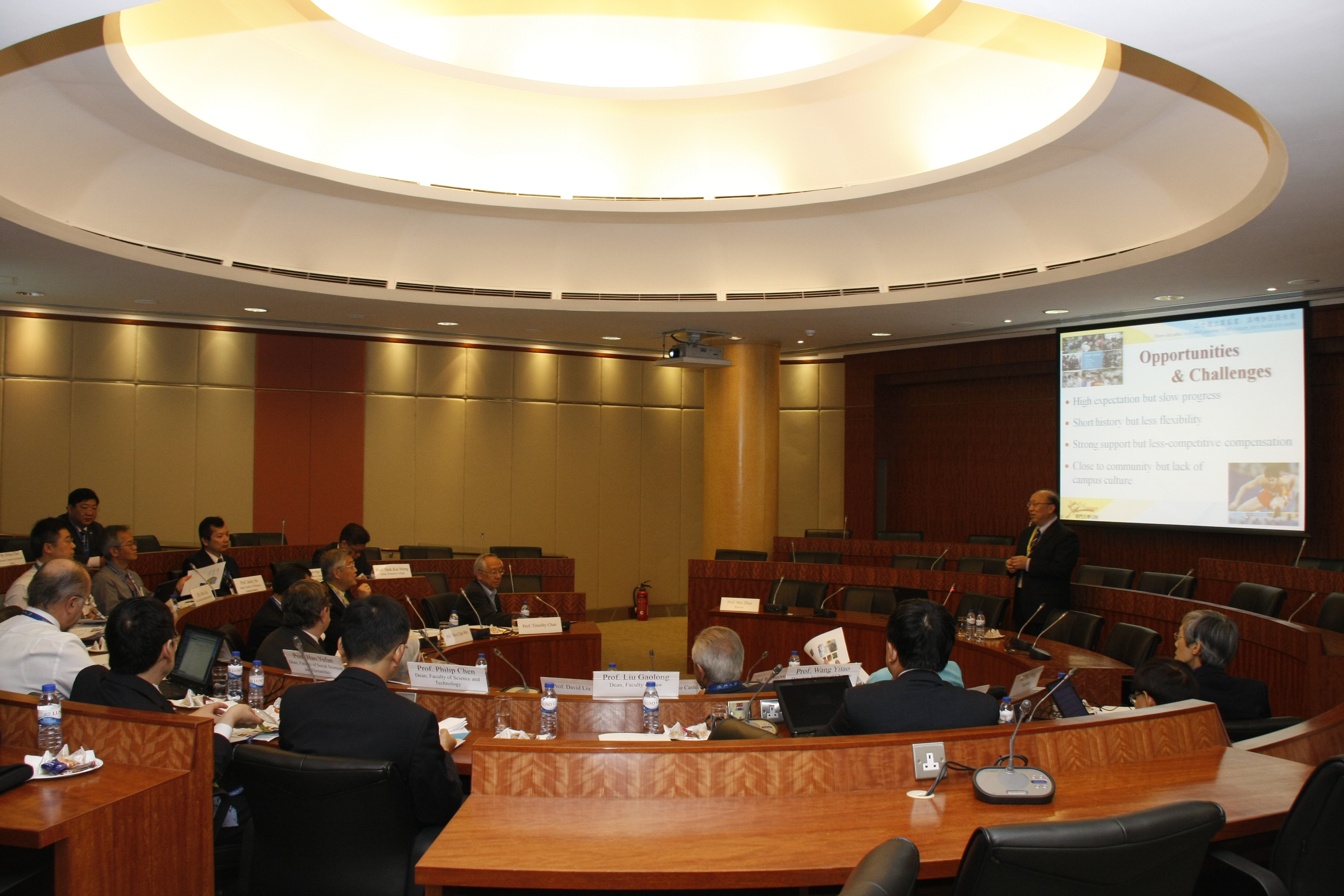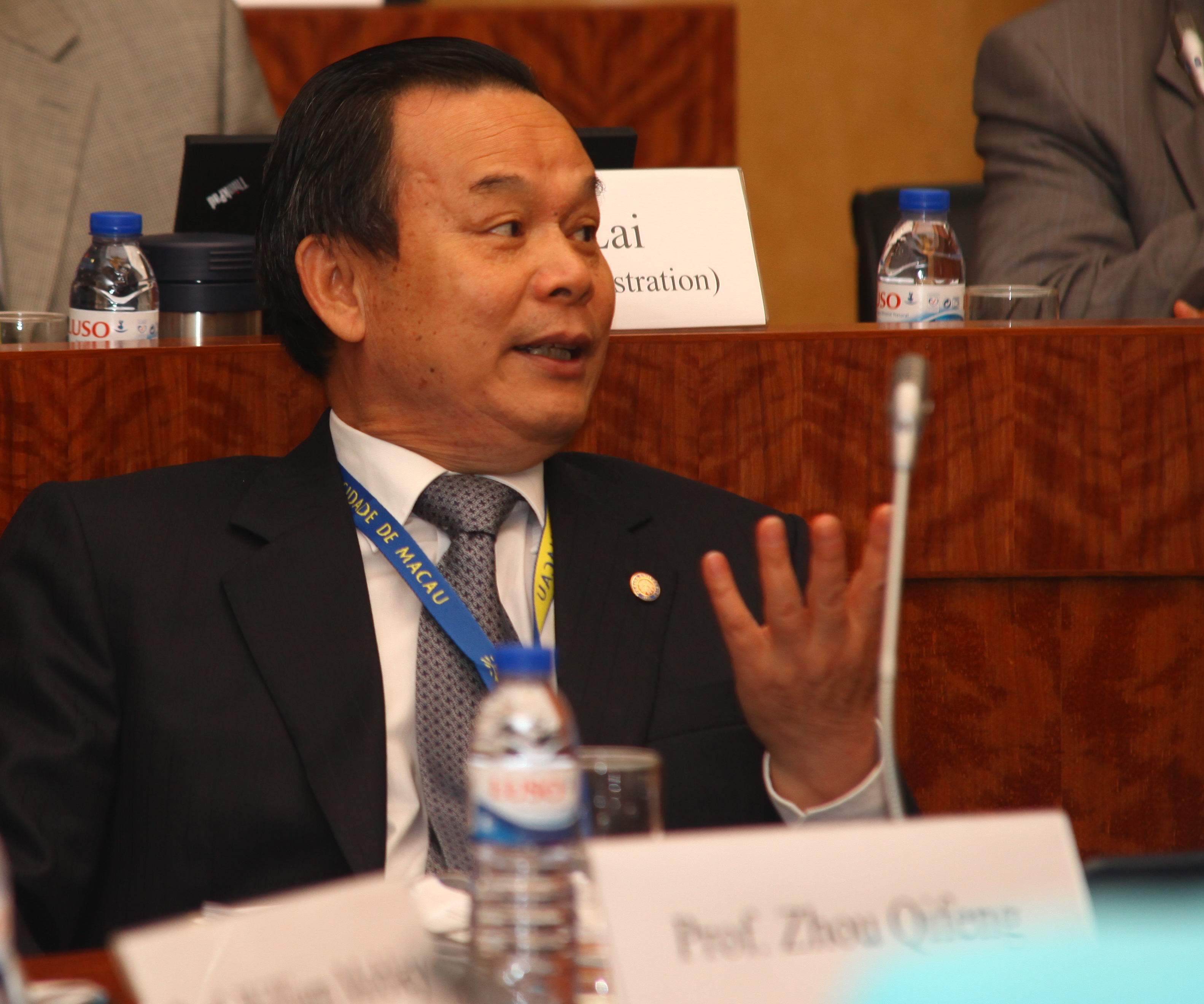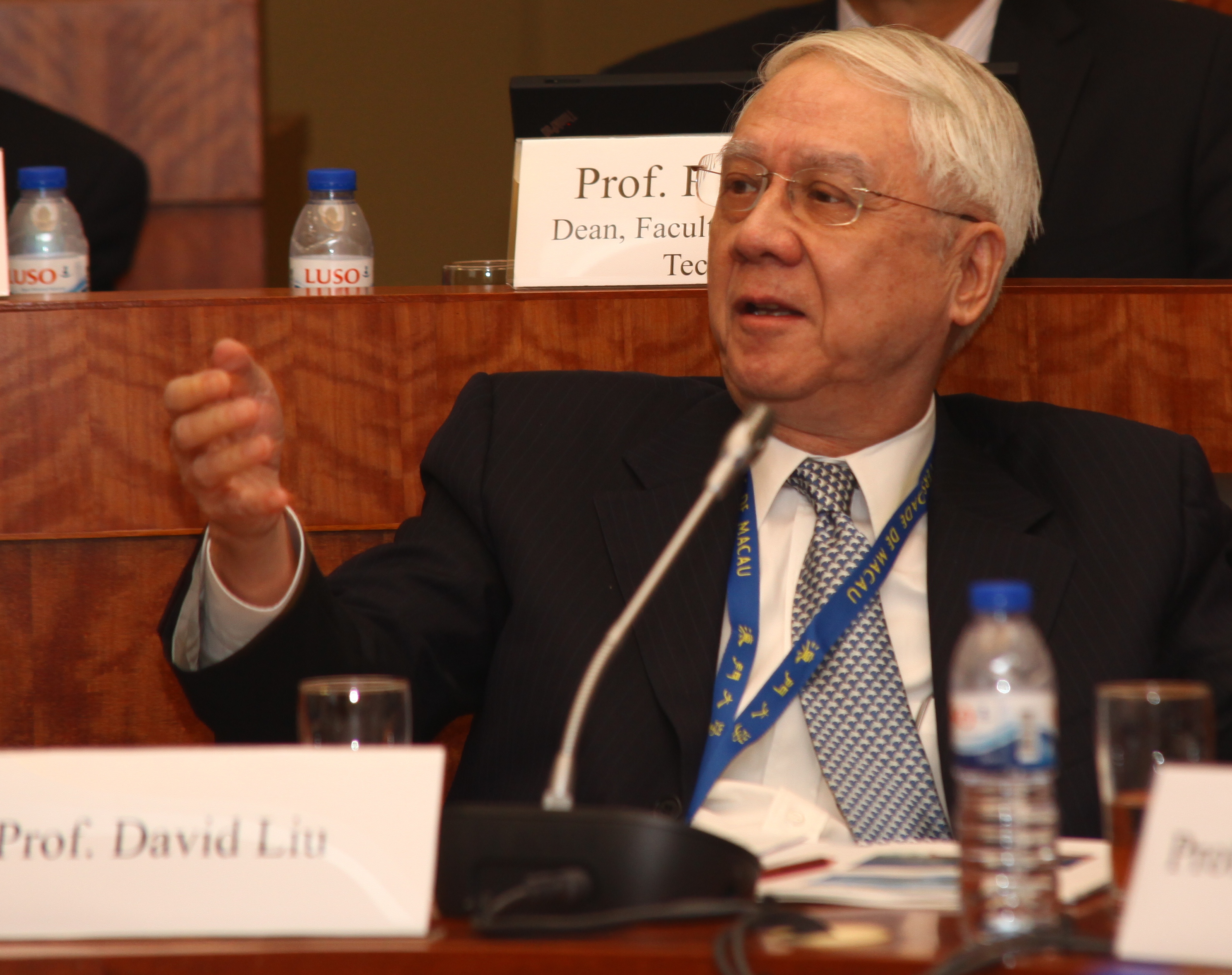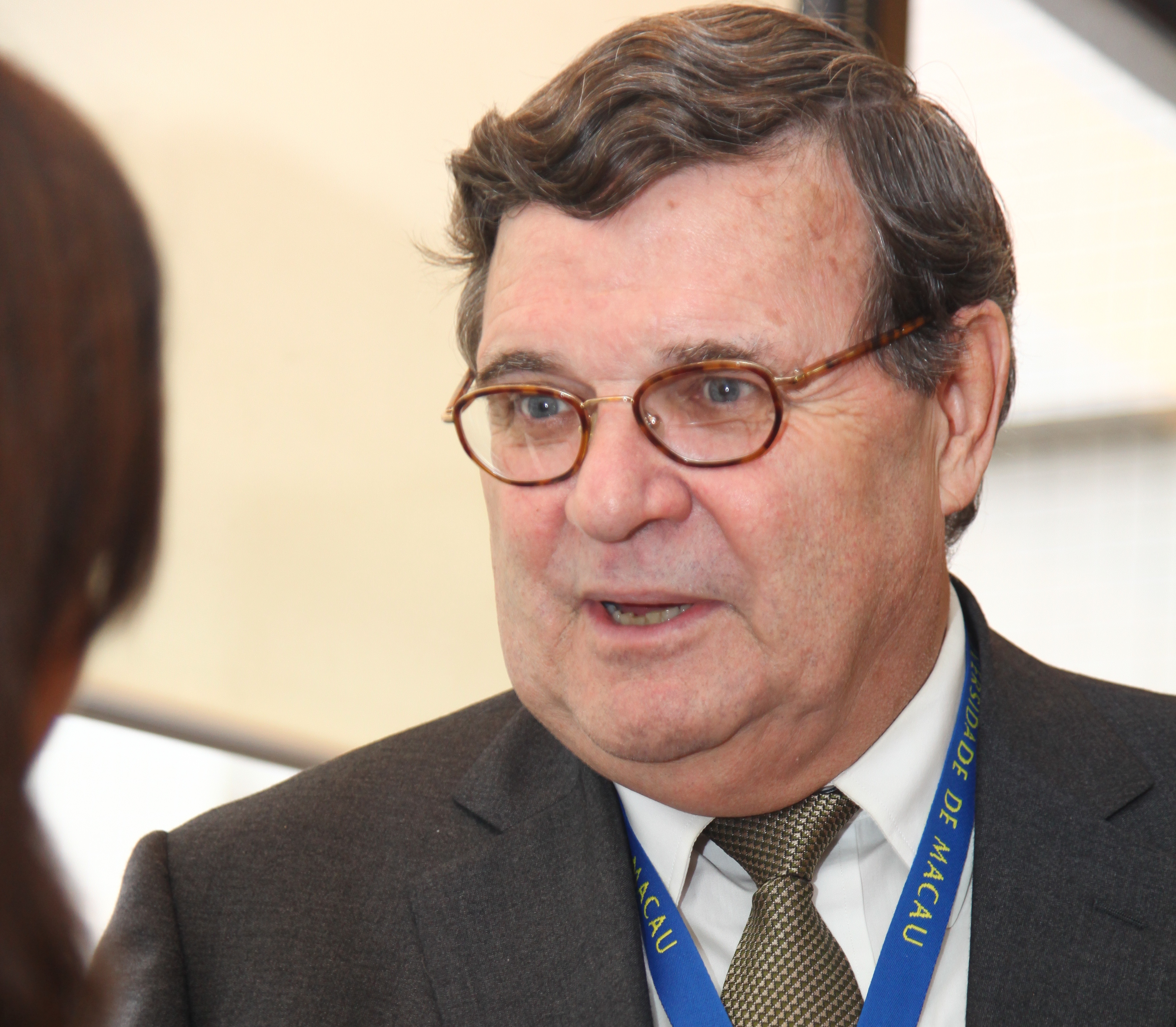In order to further improve teaching, research, management and international competitiveness, recently the University of Macau (UM) held the first meeting of the International Advisory Committee, which is comprised of fourteen esteemed scholars from mainland China, Hong Kong, Taiwan, the United States, Canada and Portugal.
Setting up international advisory committees is a common practice of many top universities around the world as such committees can provide necessary support for the internationalization of the institutions. The fact that many academic heavyweights accepted UM’s invitation to serve on the international advisory committee shows their recognition of UM’s achievements and rising international status. Members of the committee include founding President of the Hong Kong University of Science and Technology Prof. Woo Chia Wei, Party Secretary of Peking University (mainland China) Prof. Min Weifang, President of Peking University (mainland China) Prof. Zhou Qifeng, member of the Academy of Sciences of Lisbon (Portugal) Prof. João Malaca Casteleiro, former President of National Tsing Hua University (Taiwan) Prof. David Liu Chung Laung, former President of Texas A & M University (USA) Prof. William H. Mobley, Vice Provost of Drexel University (USA) Prof. Deborah L. Crawford, President of Georgia Institute of Technology (USA) Prof. G. P. Bud Peterson, member of the US National Academy of Sciences Prof. Wang Xiaodong, former Dean of the School of Pharmacy at the University of Southern California (USA) Prof. Timothy M. Chan, former President of the Hong Kong Institute of Education Prof. Ruth E. S. Hayhoe, former Deputy Director of the US National Science Foundation Prof. Joseph Bordogna, former member of the European Parliament and former Chairman of the National Council for Education of Portugal Prof. Manuel C. L. Porto, and member of the committees for the Basic Law of the Hong Kong SAR and Macao SAR under the Standing Committee of the National People’s Congress of the People’s Republic of China Prof. Wang Zhenmin.
At the meeting, UM Rector Wei Zhao updated the attendees on the history and recent developments of the university as well as a series of reform measures aimed at enhancing teaching quality. “In order to meet Macao’s demand for high-calibre professionals, we must create better conditions for teaching and research so we can produce more outstanding graduates with a competitive edge,” remarked Rector Wei Zhao. “We must also try our best to improve UM’s overall competitiveness and reach internationally-acknowledged standards. The road to achieving this goal will undoubtedly be a long one, and there will be many challenges ahead of us. Therefore, our efforts alone will not be enough. We need the support of local and international communities. That’s why we set up the international advisory committee to solicit expert opinions on the university’s future development. We believe the committee will have a far-reaching impact on the future development of the university. ”
UM’s vice rectors Prof. Simon Ho, Prof. Rui Martins and Dr. Alex Lai talked about the governance and management systems of the university, academic staff recruitment and promotion systems, academic developments, and internal issues and external challenges faced by the university. Dr. Alex Lai informed the attendees that UM is now reforming the remuneration system for academic staff in order to make salaries on a par with international standards and attract more top professors. He also said that UM has implemented a new promotion system to encourage academic staff to carry out more scientific research, which hopefully will help enhance the university’s overall academic level.
The meeting was conducted in an amicable atmosphere and resulted in many constructive suggestions.
Founding President of the Hong Kong University of Science and Technology Prof. Woo Chia Wei said: “In order to obtain top professors, it is imperative that we have strong faculty deans and department heads. All in all, UM has a very clear idea about its development direction and goals and also has well thought-out long-term plans. My concern is that do we have the vision and a broad perspective to make sure that the university’s positioning—the future it envisions—answers the needs of Macao society? Education is not like business operation. Its objective is not to gain the fattest profits within the shortest time possible. Education requires that one be visionary and have a bird’s eye view of the whole picture. If Macao can become one of the most important cities in the Pearl River Delta region, then graduates or research results from UM will have effects not only on Macao, but also on the entire Southeastern China which will likely reciprocate. UM is presented with a very good opportunity. I believe once the construction of the new campus is completed, UM will be able to attract more top professors. ”
Former President of Texas A & M University (USA) Prof. William H.Mobley said: “I’m very impressed with the speed with which the university is developing as well as the comprehensive plan about the undergraduate experiences, the honours programme, etc. It’s a very good plan, but obviously it has also created so many challenges due to a lot of changes within a relatively short period of time. Obviously the new campus is exciting, and a lot of things of positive nature are happening. Of course there’ll be challenges in terms of recruiting good professors, in terms of how to keep up with the growth, in terms of how to effectively communicate with the community, employers and prospective students, about what’s happening, but overall I am very positive and the advisory board and the advisory committee that are here this week are very impressed with what they are seeing and hearing. There are a lot of good ideas and a lot of open communications, which reflects a culture that values qualitative growth and contribution to the local and international communities.”
Following the meeting, committee members visited the construction site of the new campus.






